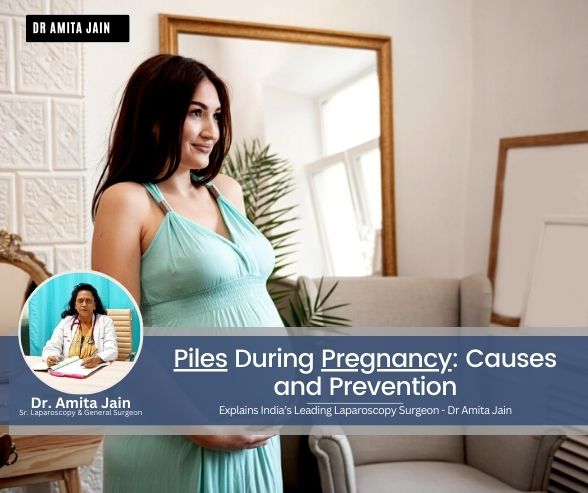Haemorrhoids or piles are common during pregnancy, particularly, in the third trimester when the enlarged uterus puts pressure on the veins.
Piles or haemorrhoids can be painful. They might also itch, sting, or bleed, particularly, during or after a bowel movement.
While your body passes through all kinds of physical transformation during pregnancy, hemorrhoids could be one most unwanted form of irritation. But the good news is that they usually, aren’t harmful to your health or the health of your baby, and they are usually a short-term problem. Albeit, pushing during labor could worsen hemorrhoids, they generally, go away on their own once you give birth.
What Can Cause Hemorrhoids During Pregnancy
As your unborn baby grows, your uterus gets bigger and starts to press against your pelvis. This growth exerts a lot of pressure on the veins and these veins might become swollen and painful as an outcome.
The boost in the hormone progesterone during pregnancy could also contribute to the formation of hemorrhoids, as it relaxes the walls of the veins, making them more susceptible to swelling. A boost in your blood volume, which enlarges the veins, can also contribute to hemorrhoids during pregnancy.
Three common additional causes of hemorrhoids during pregnancy are:
- Straining during bowel movements
- Straining from carrying additional pregnancy weight
- Sitting or standing for a prolonged duration of time
How to Prevent Hemorrhoids During Pregnancy
Avoiding constipation is important to prevent hemorrhoids during pregnancy. Here are a few tips for avoiding constipation:
Eat plenty of high-fiber foods. There are a lot of good ways to include more fiber into your diet. Fiber-filled foods include fruits such as pears (particularly, when you include the skin), avocados, berries etc vegetables like broccoli, artichokes, and Brussels sprouts; whole grains like oatmeal, brown rice, and quinoa legumes including several kinds of beans, lentils, and green peas; and don’t forget nuts and seeds.
Use the toilet as soon as you feel like releasing it. Holding it in could contribute to constipation.
Try not to sit or stand for a prolonged duration. If you sit down while working, make certain to get up and walk around for a few minutes each hour. At home, whenever you rest, make it a point to be on your side while reading or watching television, to relieve downward pressure on your rectal veins.
Ask your doctor about using a stool softener. This might help if other ways fail to ease your constipation. Using laxative pills for constipation is not recommended during pregnancy, as they might cause dehydration and may stimulate uterine contractions.
Do Kegel exercise regularly? Kegel exercises boost the pelvic floor muscles that help support your rectum and could improve circulation in the area. You can do Kegel exercises simply about anywhere — at home, in your car, at the office — but first you ought to make sure you are isolating and contracting the correct muscles.
Identify the right muscles by stopping urination midstream. (This is strictly for the purpose of identifying which muscles that are being talked about, you don’t want to do Kegels while urinating, as this will increase your risk for a urinary tract infection).
Once you know which muscles to utilize, tighten them and hold the contraction for 5 seconds. Then relax for 5 seconds. Work up to holding the contraction for 10 seconds. Try to do at least 3 sets of 10 reps each day.
This blog is from Delhi’s top laparoscopic surgeon for piles and fissures, Dr. Amita Jain.

Dr Amita Jain is a surgeon with the highest degree of professional competence, precision and surgical craftsmanship. Performed all complicated general surgery procedures with in depth knowledge of invasive and few minimal invasive and onco surgical techniques. Underwent special training in trauma, executed various trauma-related complex life-saving neurosurgical procedures, reconstructed injured mangled limbs and performed vascular and reconstructive procedures with critical care.
Dr Amita Jain holds 28 plus years of rich experience in Trauma and General Laparoscopic Surgeries (including Gallbladder stone removal, appendix removal, hernia repair surgery, piles and fissure surgeries). She was the Professor Surgery of at the Army College of Medical Sciences and Base Hospital Delhi Cantt. In 1994 she was commissioned as Surgeon under the United Nations Mission in Congo. From 2020 to 2022, she worked with Bansals Hospital. Currently, Dr Amita Jain is the Senior Consultant, (Speciality: General and Laparoscopic Surgeon) at Artemis Lite Hospital, New Delhi and Sr. General and Laparoscopic Surgeon at Rainbow Children Hospitals, Malviya Nagar, Delhi.

